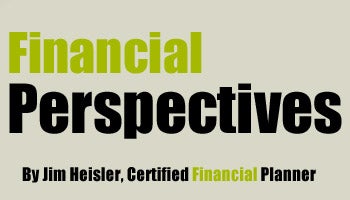Financial Perspectives: Not too early for year-end planning

Time is ticking by and all the focus is now on the presidential election. The problem is that Congress is not addressing one of the biggest areas of concern for the country, which is the 2013 tax policy.
There was a lot of debate about this earlier in the year, but now that the election is at hand, the politicians are not willing to take a real stance one way or another for fear of the repercussions.
There are things you should be aware of, and if it is prudent, things you can do to reduce your tax burden in 2013. Let’s go through a quick review of what is likely change as of Jan. 1 if nothing is done.
First, tax rates will automatically adjust to the pre-Bush era rates, which will result in upward adjustments of all the tax brackets, with the top bracket increasing to 39.6 percent from 35 percent. It would also mean an increase in the capital gains tax rate and the favorable treatment currently given to dividends.
Second, the Patient Protection and Affordable Care Act passed in 2010 will automatically result in a tax increase on high-income earners with the imposition of .90 percent increase in the Medicare payroll tax and an additional 3.8 percent tax on unearned income. The thresholds for the imposition of these additional taxes is $200,000 for single filers and $250,000 for married filers
What can you do to protect yourself from this uncertainty? If you were planning to cash in some of your investments for a large purchase of some sort in 2013, it could make sense to consider doing it in 2012 to receive more favorable tax treatment.
Next, since it is likely we will all experience some increase in our tax rates, do not plan to receive the same tax refund as you normally would. You may also find that more money will be deducted from your paycheck. If you work for yourself, you may have to increase your income tax pre-payments. If you are a high income earner, you will be impacted more significantly. It may make sense to see if you can accelerate some income into 2012 or defer it to a later year, if this is possible.
If you are the least bit unsure about any of this, I urge you to consult your tax advisor. All of this is up in the air right now and it is very likely that Congress will start a mad dash to create some kind of legislation before the end of the year. The party that wins the presidency will likely end up with the biggest seat at the table when the dash starts. It could also result in total gridlock, like last year’s budget battle. There is a lot at stake for us as a country.
Despite the political consequences, we have to begin to address our long-term deficit problems. The ratings agencies are in the midst of lowering the U.S.’s credit ratings again. If Congress wimps out as it relates to taking on this tax issue objectively, with our long-term interests in mind, we will see our sovereign debt problems move in the direction of Greece, Spain and Italy. We cannot afford to let that happen. It is not fair to our children and grandchildren.
The views expressed are not necessarily those of Cambridge and should not be construed as an offer to buy or sell any security.
Jim Heisler, CFP®, CDFA™, CASL™ Family Wealth Services, LLC 8725 Frankford Avenue Philadelphia, PA 19136 jim@familywealthservices.net 215-332-4968
Jim Heisler is a Certified Financial Planner with Family Wealth Services in Holmesburg. You can read all his Financial Perspective columns here.
WHYY is your source for fact-based, in-depth journalism and information. As a nonprofit organization, we rely on financial support from readers like you. Please give today.






